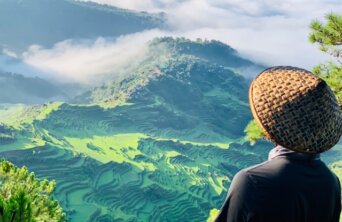- About
- Topics
- Picks
- Audio
- Story
- In-Depth
- Opinion
- News
- Donate
-
Signup for our newsletterOur Editors' Best Picks.Send
Read, Debate: Engage.
| topic: | Human Rights |
|---|---|
| located: | Philippines |
| editor: | Ron Lopez |
The Philippines is known for its rich biodiversity, pristine beaches, lush forests and diverse landscapes. Considered one of the world’s biodiversity hotspots, the Southeast Asian country is home to various flora, fauna, and numerous endemic species.
But its natural beauty is an alluring target for people who want to exploit the country’s natural resources, ranging from corporations and business people to politicians.
These vested interests have made protecting the environment deadly, and the Philippines government’s practice of accusing some activists of being members of the communist movement adds to the threats they face.
According to a 2023 report by Global Witness, an international NGO, the Philippines remains the deadliest place for environmental defenders in Asia since it started documenting such killings in 2012.
Out of 16 environmental defenders killed in Asia in 2022, 11 occurred in the Philippines.
“The Philippines has consistently ranked as the worst place in Asia for land and environmental defenders, with 281 people killed since 2012. Of these, a third were linked to defenders speaking out against company operations linked to the mining sector,” reads the September report.
Just before the report’s release, the Philippines military reportedly abducted two environmental activists working with fishermen opposing a reclamation project in the capital, Manila.
The incident caught the nation’s attention, with several groups and student organisations calling on the military to release the activists.
After two weeks, the military claimed the two surrendered and quit the communist movement. They then held a press conference with the activists, who unexpectedly went off script and declared they were abducted and threatened by authorities.
Environmental activists in the Philippines are facing increasing risks as they work to protect their land and waters. This recent alleged abduction and accusation of involvement with the communist movement highlights the dangers they face when clashing with the government, which is supposed to be their protector.
While the Philippines is a signatory of international treaties and has strong domestic laws that protect human rights and the environment, its enforcement on the ground is weak. Moreover, many environmental defenders are from poor communities lacking access to legal assistance, making justice elusive.
To stop these killings, the authorities must take serious and bold actions to hold perpetrators accountable, even if that means going against people in the government.
Without substantial evidence, the government should not label activists as communist fighters. This violates their fundamental human rights and makes them vulnerable to attacks.
Image by Michael Rivera.

